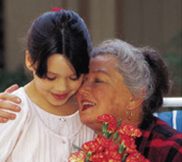AARP Hearing Center
About 5.8 million people in the U.S. have Alzheimer's disease. Of those about two-thirds are women, and that number is growing. According to a new report from the AARP-founded Global Council on Brain Health, by 2050, the number of Americans living with Alzheimer's is expected to reach 13.8 million. More than 9 million Alzheimer’s patients will be women.

In this edition of the AARP Texas Prepare to Care podcast, Ann Marie McDonald, the program officer at the Alzheimer’s Association, joins us. She talks to us about the trends that are fueling the gender discrepancy, Alzheimer’s and Dementia, and much more.
Dementia is a syndrome and a collection of symptoms that the person experiences. On the other hand, Alzheimer’s is a disease and one of the many biological causes of Dementia. Dementia is an ‘umbrella term’ and Alzheimer’s is one of its kind.
McDonald said, “Dementia means that a person’s cognition has declined to the point where it interferes with their daily activities. Such as dressing and feeding yourself or dealing with finances.”
The latest numbers show that 1 in 5 women are diagnosed with Alzheimer’s disease compared to 1 in 10 in men.
“This discrepancy is probably due to the fact that women live longer than men. Researchers are now questioning whether the risk of Alzheimer’s could be higher for women due to biological or genetic variations or life experiences. We need more women to get involved in research studies,” said McDonald.
When caring for a loved one, it is important to know the early signs that could indicate Dementia. The Alzheimer’s Association has a list of warning signs on their website.
“Each individual can experience one or more signals to different degrees. Dementia and Alzheimer’s is not a part of normal aging. Look for things like memory changes that make daily life difficult. Difficulty in understanding visual images and how objects relate to each other in certain environments. The most common signs are changes in mood or personality,” said McDonald.
Alzheimer’s is unfortunately one of those diseases that does not have a cure. While there is no cure, there are medications that can temporarily slow the progression of the symptoms and improve the quality of life.
Isolation has been prevalent in this day of COVID-19 and even more for people with Dementia and Alzheimer’s.
“Dementia-related behaviors could often increase your risk of COVID. People with Alzheimer’s may forget to wash their hands or take other recommended precautions. Therefore, caregivers believe that they should isolate themselves even more if they need too. We at the Alzheimer’s Association believe that we should be staying connected virtually,” said McDonald.
The Alzheimer’s Association offers many resources virtually such as support groups, educational courses, and virtual day center activities. McDonald suggests finding help by looking for online resources if friends and family are not able to help.
“I encourage that everyone note down our number, 1(800) 272-3900 because we are available 24 hours a week whenever you need help. Reach out and get support, please do not go through this journey alone. Alzheimer’s and COVID-19 can be very isolating but we are here to help you,” said McDonald.































































